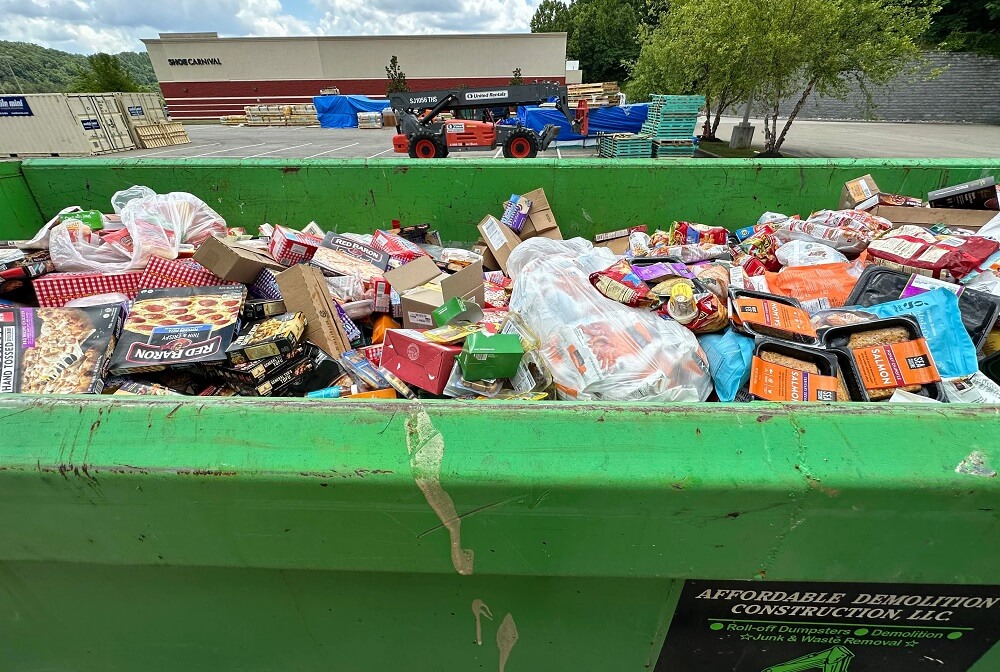Power outages not only affect electricity but also cause staggering amounts of food waste for major retailers.
What's happening?
A Target employee recently posted an image on Reddit depicting multiple shopping carts filled with perishable goods that had to be discarded following a prolonged power outage.


According to the post, the store lost electricity for approximately 10 hours, rendering refrigerated and frozen foods unsafe to sell.
Commenters on the thread shared similar experiences, with one recalling a past storm where an entire store's worth of perishable goods was thrown away.
"That blows. Shame that it has to be thrown away," one user commented.
Why is food waste important?
Food waste is a massive environmental and social issue, with nearly 40% of food in the U.S. going uneaten, according to the Department of Agriculture.
Watch now: Grocery store executive reveals simple ways the chain slashes its operating costs
When grocery stores and retailers discard untouched food, it not only wastes resources like water and energy used in production but also contributes to harmful gas emissions when the waste decomposes in landfills.
Beyond environmental concerns, this incident highlights corporate policies that often prevent stores from donating food after power outages due to liability fears and food safety regulations.
While these policies are intended to protect consumers, they also contribute to unnecessary waste — especially at a time when food insecurity remains a big issue.
|
Which of these groups has the biggest role to play in reducing food waste? Click your choice to see results and speak your mind. |
Is Target doing anything about this?
Target has sustainability goals that focus on waste reduction and responsible sourcing, but food waste remains a challenge for large retailers.
TCD Picks » Upway Spotlight

While the company partners with organizations like Feeding America to donate unsold food, perishable items affected by power outages typically aren't included due to food safety concerns.
Some companies have found successful ways to donate food after power outages. For instance, when a Kroger store in North Little Rock lost power due to severe storms, the Arkansas Foodbank stepped in to save over 60,000 meals.
They quickly recovered 76,833 pounds of perishable food, including items from the freezer and refrigerator sections that were at risk of spoiling. This food was then distributed to communities in Central Arkansas, providing immediate relief for residents affected by the power outage.
Such collaborations between grocery stores and food banks demonstrate that solutions can be found to protect inventory from going to waste.
What's being done about food waste more broadly?
Consumers play a big role by supporting stores that prioritize food waste reduction and advocating for policies that encourage responsible food donation.
Reducing personal food waste, composting, and supporting businesses with sustainable practices are also impactful ways individuals can help address the larger issue.
As conversations around sustainability and corporate responsibility grow, there's hope that companies will adopt more innovative strategies to curb unnecessary waste while still ensuring food safety for consumers.
Join our free newsletter for good news and useful tips, and don't miss this cool list of easy ways to help yourself while helping the planet.


















